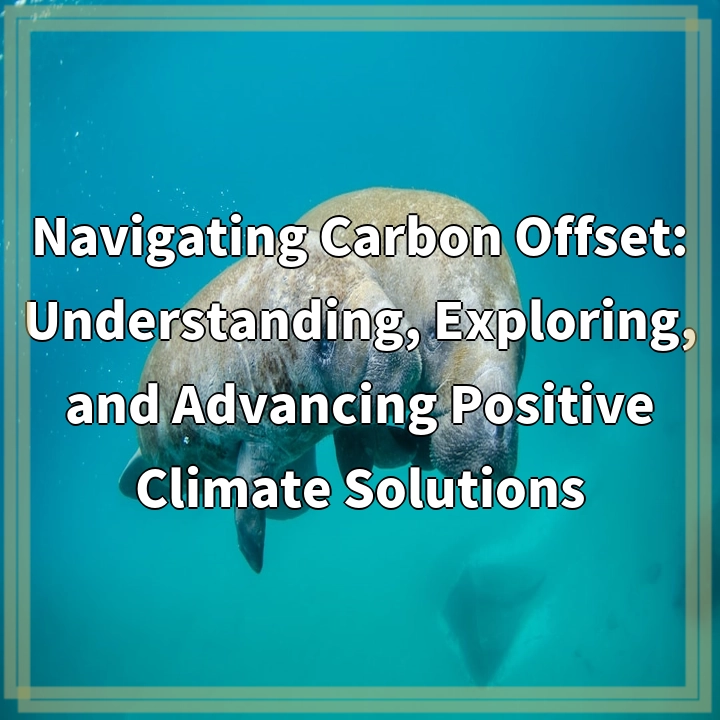Physical Address
304 North Cardinal St.
Dorchester Center, MA 02124
Physical Address
304 North Cardinal St.
Dorchester Center, MA 02124

Carbon offset is a mechanism designed to reduce greenhouse gas emissions by supporting initiatives that offset or compensate for the carbon emissions produced. It involves investing in projects that can either remove carbon dioxide from the atmosphere, such as reforestation and afforestation, or reduce emissions in other sectors, like renewable energy projects or energy efficiency improvements.
Carbon offsetting has gained significant attention and popularity as individuals and companies strive to reduce their carbon footprint and mitigate the impacts of climate change. The concept of carbon offsetting operates on the principle that, even if we cannot completely eliminate all emissions, we can invest in projects and initiatives that help to balance out our environmental impact.
By supporting carbon offset projects, individuals and organizations can claim that they have effectively neutralized their emissions. However, it is important to understand that carbon offsetting is not a silver bullet solution. While it can play a role in the overall strategy to combat climate change, it should not be seen as a substitute for reducing emissions at the source.
Despite its potential benefits, carbon offsetting faces several real-world challenges and criticisms that need addressing:
One of the key challenges is ensuring that the funds invested in carbon offset projects are truly additional, meaning that they go towards projects that would not have happened without the support. This requires rigorous monitoring and verification processes to avoid double-counting or double-dipping.
Some carbon offset projects, such as tree planting, can be reversible if the trees are cut down or destroyed. Ensuring the long-term permanence of the carbon sequestered or emissions reduced is a significant challenge that needs to be addressed to maintain the integrity of carbon offset projects.
Leakage refers to the unintended increase in emissions in other areas or sectors as a result of carbon offset projects. For example, supporting a renewable energy project in one country may lead to the displacement of fossil fuel energy generation to another country. Careful assessment and accounting for leakage are crucial to avoid unintended negative consequences.
Accurately measuring and verifying the actual emissions reduction or carbon sequestration achieved by offset projects can be complex. Robust methodologies and transparent reporting are necessary to ensure the credibility and transparency of carbon offset projects.
Carbon offsetting alone cannot address the wide range of environmental, social, and economic challenges associated with climate change. It is essential to view it as part of a comprehensive approach that includes emission reduction, sustainability practices, and transitioning to a low-carbon economy.
While carbon offsetting presents opportunities to support positive climate solutions, it is crucial to understand its limitations and address the real-world challenges. By acknowledging and working to overcome these hurdles, carbon offsetting can serve as a valuable tool in the broader fight against climate change, helping us to navigate towards a sustainable future.
Carbon offsetting can contribute to a sustainable future by helping to balance out our environmental impact and reduce greenhouse gas emissions. The popularity of carbon offsetting reflects a growing awareness and commitment to reducing carbon footprints and mitigating the impacts of climate change.
By implementing solutions to the challenges of carbon offsetting, we can overcome the challenges associated with carbon offsetting and maximize its potential as a tool for positive climate solutions. By ensuring additionality, permanence, and addressing leakage, while improving measurement and verification mechanisms and adopting holistic approaches, carbon offsetting can play a valuable role in our collective efforts to combat climate change.
By navigating the challenges of carbon offsetting, we can advance positive climate solutions and work towards a more sustainable and resilient future.
If you’re wondering where the article came from!
#